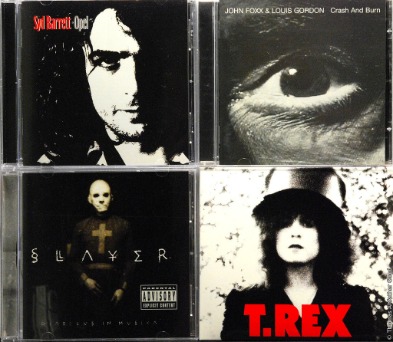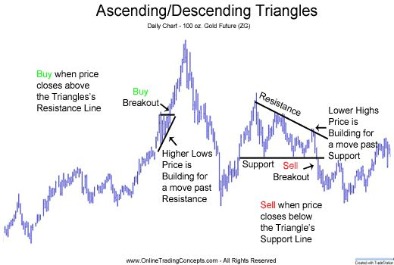Contents

In most developed countries, stock exchanges are self-regulatory organizations , non-governmental organizations that have the power to create and enforce industry regulations and standards. An individual or entity that owns 100,000 shares of a company with one million outstanding shares would have a 10% ownership stake in it. Owning stock means that a shareholder owns a slice of the company equal to the number of shares held as a proportion of the company’s total outstanding shares.

With Meta phasing out certain offices and products, investors were suddenly hopeful the company could recoup its losses. Many analysts have suggested that at least a few FAANG stocks will bounce back in 2023. We’ll break down each company’s recent performance and financials before considering what 2023 may hold for these five recognizable stocks. 2022 was a particularly rough year for the FAANG stocks, with all five of them seeing a tumble in share price. With some experts suggesting it’s time to update the acronym to represent the new top dogs in this field, the question is whether they can make a comeback in 2023. Junior equity is corporate stock that ranks at the bottom of the priority ladder for dividend payments and bankruptcy repayments.
How are prices determined on a stock market?
Stockbrokers, buying and selling stocks through the broker’s trading platform, which connects them to exchanges. If you don’t have a brokerage account, you’ll need one to buy stocks. NerdWallet, Inc. is an independent publisher and comparison service, not an investment advisor.
Learn how to invest in stocks, including how to select a brokerage account and research investments. For a reminder of what those terms mean, revisit the definitions above. For example, if a business that you invested in closes its doors, your investment is likely gone for good. Stock investors are last in line when it comes to claims on the assets. Employees, vendors and bondholders are all in line to get paid before the stockholders.

Burdensome regulations may constrict a company’s ability to do business. The S&P 500 is a market-cap-weighted index of the 500 largest companies in the U.S. and is a much more valid indicator. Check outthe Moneyist private Facebookgroup, where we look for answers to life’s thorniest money issues. Post your questions, tell me what you want to know more about, or weigh in on the latest Moneyist columns. Youcan email The Moneyist with any financial and ethical questions related to coronavirus at , and follow Quentin Fottrell onTwitter. My wife’s share of her parents’ inheritance is being split among the four grandchildren — my daughter and her three cousins — rather than going 100% to my child.
As the owner of the stock, you’ve placed your faith in the company’s management and how it handles different situations. If you are not happy with the management, you can always sell your stock, but if you are happy, you should hold onto the stock and hope for a good return. The highest offer to buy shares listed from a market maker at any given time is known as the bid, and the lowest offered selling price is known as the ask. If you are young and saving for a long-term goal such as retirement, you may want to hold more stocks than bonds.
Stocks are traded on an exchange, and the value of these stocks can fluctuate over time. Pulse Empowering companies to connect with their retail investors. Our mission is to provide readers with accurate and unbiased information, and we have editorial standards in place to ensure that happens. Our editors and reporters thoroughly fact-check editorial content to ensure the information you’re reading is accurate. We maintain a firewall between our advertisers and our editorial team.
If you want mutual funds and have a small budget, an exchange-traded fund may be your best bet. Mutual funds often have minimums of $1,000 or more, but ETFs trade like a stock, which means you purchase them for a share price — in some cases, less than $100). If you go this route, remember that individual stocks will have ups and downs. If you research a company and choose to invest in it, think about why you picked that company in the first place if jitters start to set in on a down day. You’ll want to evaluate brokers based on factors such as costs, investment selection and investor research and tools. Once you have a preference in mind, you’re ready to shop for an investment account.
THE 3 BEST TOOLS FOR BEGINNER INVESTORS
Most brokerages ask for a small fee, but the single stock return (if you’re not interested in spending too much) makes up for that. Companies that are growing quickly and showing impressive sales and profits can offer investors growth stocks. Usually, these stocks are risky and inexpensive but with great potential. To offer large-cap stocks, a company must have a market capitalization of $10 billion and above. Buying stock from these companies is considered safer with a low risk of losing your money.
- The thing about stocks and investing is that it can be incredibly risky but also promises great rewards.
- These funds invest in hundreds — sometimes even thousands — of stocks.
- That’s because there are plenty of tools available to help you.
- They come from companies that don’t have many fluctuations in demand, such as retailers.
- If you own a majority of shares, your voting power increases so that you can indirectly control the direction of a company by appointing its board of directors.
- Having stock means you’ve bought shares from a range of companies that caught your fancy.
The https://topforexnews.org/s are often lower, even over the long term, and are less volatile in day-to-day dips and spikes. In addition to buying stocks, many investors include bonds in their portfolios. To raise capital, corporations can also issue bonds, but buying one does not make you an owner. Instead, you are making a loan to the company, and the bond comes with a maturity date. The best-case scenario of owning a bond is that you get your money back on that date with some additional interest paid out along the way. Bonds have a higher priority of repayment in the event of a company’s liquidation, which means they are safer than stocks – though you can still lose some or all of your money.
Why You Should Invest In Stocks
Examples of such SROs in the U.S. include individual stock exchanges, as well as the National Association of Securities Dealers and the Financial Industry Regulatory Authority . The NYSE and Nasdaq are the two largest exchanges in the world, based on the total market capitalization of all the companies listed on the exchange. Common stock can be further classified in terms of voting rights. Some companies have dual or multiple classes of stock with different voting rights attached to each class.
https://forex-trend.net/ services for alternative assets available on Public are offered by Dalmore Group, LLC (“Dalmore”), member of FINRA & SIPC. “Alternative assets,” as the term is used at Public, are equity securities that have been issued pursuant to Regulation A of the Securities Act of (“Regulation A”). These investments are speculative, involve substantial risks , and are not FDIC or SIPC insured. Alternative Assets purchased on the Public platform are not held in an Open to the Public Investing brokerage account and are self-custodied by the purchaser.
NerdWallet does not offer advisory or brokerage services, nor does it recommend or advise investors to buy or sell particular stocks, securities or other investments. Stocks are one of the basic ways to diversify an investment portfolio. Investors buy different stocks in companies large and small in a wide variety of industries to help mitigate risk, as different sectors of the economy thrive at different times. For example, a company selling paper products might experience record sales during an economic crisis like COVID-19 whereas an automaker might have below-average sales performance.
Doing so provides for balanced economic exposure, which has been shown to bolster long-term investment performance and minimize downside risk. At a share price more than 60 times even optimistic analyst forecasts for forward earnings, and slow or no growth all year long, investors are probably right to be leery of Bandwidth stock today. When a company issues stock, it is selling off portions of ownership to investors. The stock market is just a place where investors buy shares in companies that are listed on the market. You don’t have to be an accredited investor to start buying stocks with RealtyMogul. The return rates are reasonable, and passive asset allocation makes investing a lot simpler.
S&P 500 ETF is the best investment most Americans can make — and choosing individual stocks only if you believe in the company’s potential for long-term growth. Vanguard recommends international stocks make up as much as 40% of the stocks in your portfolio. You can purchase international stock mutual funds to get this exposure. But mutual funds are unlikely to rise in meteoric fashion as some individual stocks might. The upside of individual stocks is that a wise pick can pay off handsomely, but the odds that any individual stock will make you rich are exceedingly slim. Paper trading, which lets you learn how to buy and sell with stock market simulators before you invest any real money.
What Is Shareholder Ownership?
Again, https://en.forexbrokerslist.site/ a stock doesn’t mean you carry a lot of weight within the company, or that you get to rub elbows with company bigwigs. It also doesn’t mean that you own a piece of the company’s assets — you aren’t entitled to a parking spot in the company lot or a desk at the company’s headquarters. We believe everyone should be able to make financial decisions with confidence.




